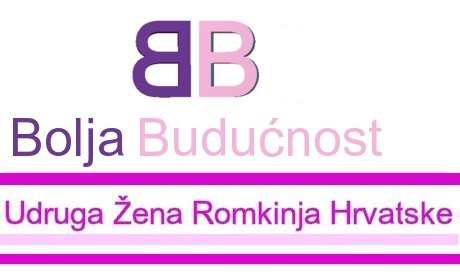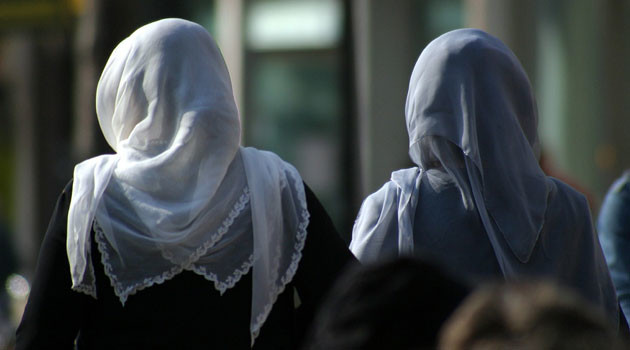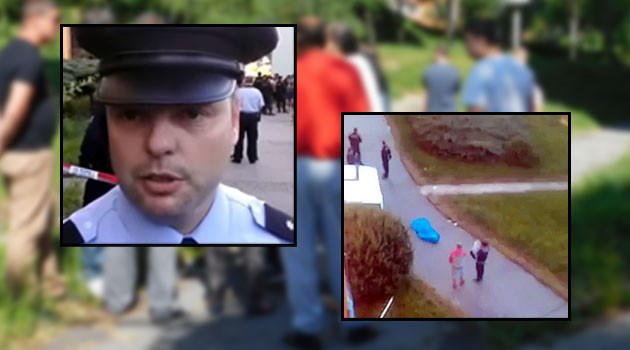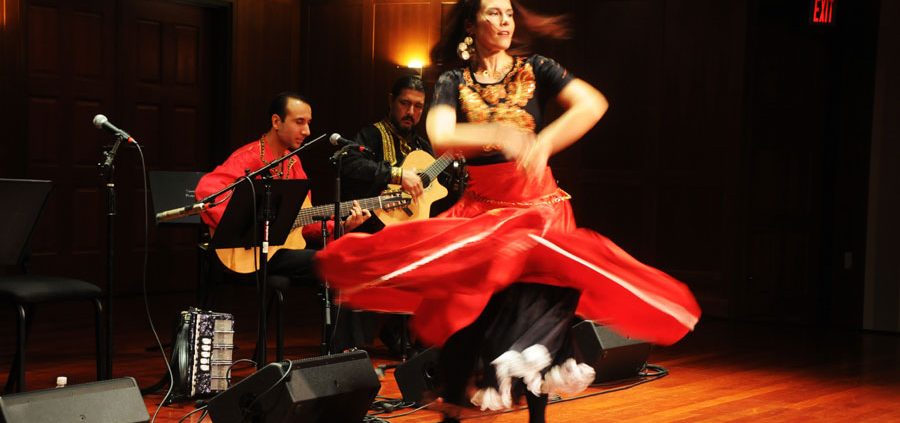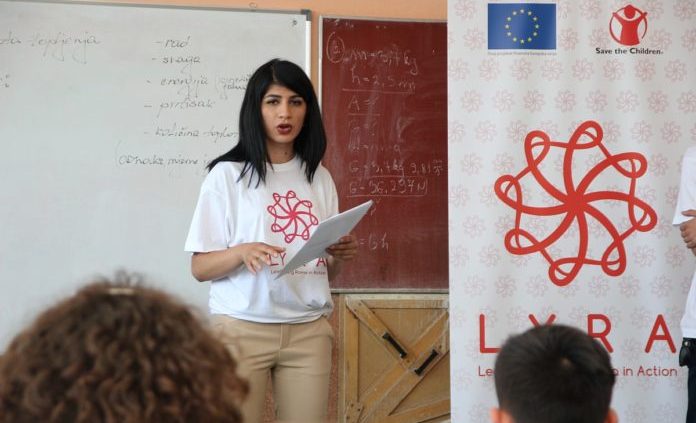Dr. Petra Gelbart was born in Ústí nad Labem and considers Prague her home. At the age of 10, her parents moved the family to the USA. She studied musicology, specializing in ethnomusicology and education. During the school year she lives with her husband and two children in New York, in the predominantly Hispanic/Indian neighborhood of Jackson Heights. She lectures on Romani cultures at colleges and for the general public. Her lectures often feature accordion playing and singing.
The following interview was first published in the magazine Romano voďi. In it she discusses how she went from being a student at Harvard to becoming a lecturer at the State University of New York, the necessity of being both a Romani activist and a Romani scholar, and how she still enjoys teaching children most of all.
Q: You have begun teaching at university – what will you lecture in there?
A: It’s SUNY – the State University of New York. I also work at another university with a similar name, New York University, which is private and headquartered in the center of town, but SUNY is less expensive for students and has campuses all over the state. At their campus in Purchase I will teach about Indian, Indonesian, Romani and popular music in general. I have 70 students enrolled in two courses there this semester and they will all be regularly graded, so I won’t be bored. At New York University I am supervising the independent studies of two postgraduate students and I also lead a university music group called Raklorom together with a young expert in “gypsy jazz”.
Q: You are also negotiating the establishment of a Romani Music Institute at this prestigious New York University. How is that going and what can we expect?
A: It won’t be an Institute. The head of the music department originally wanted it to be one, but the university leadership thought that idea was too ambitious. We are therefore remaining the Initiative for Romani Music. Right now we are in the phase of holding conferences, seminars and other activities through which we raise awareness about the Romani ethnicity in the academy and in general. The next step is to get a grant for this work, because otherwise it is predominantly done by volunteers. In the future we would also like to attract a larger number of students, including Romani ones, to devote themselves to studying Romani cultures and issues of inter-ethnic coexistence at NYU.
Q: You have gone in for Romani studies and you are Romani yourself. What are the advantages and disadvantages to being an insider in the community you are actually researching?
A: What I do really isn’t Romani studies. In my academic work, I practice what I call “gadjology” (the study of the gadje). To a certain degree, I am an insider among both non-Romani and Romani people, so I do my best to get others to stop comparing Romani people to the gadje (to what degree we have adapted gadje ways, or on the other hand, to what degree we are exotic) and to also compare the gadje to Romani people – and mainly, to compare the gadje to one another. That means that when we discuss “gypsy crime”, as if it were something extra-specific, we should also discuss gadje crime, because in the Czech Republic that has even more specific features than, for example, Romani theft does. That is just one example of many.
I consider the greatest advantage of being involved in Romani studies to be the fact that I have gotten to know Romani people from very diverse subgroups, and I never assume that one or or another feature of these groups belongs to some sort of general “Romani culture”. The disadvantage, besides the fact that I am only Romani on my mother’s side and I have never personally experienced some realities, is that I am constantly engaged as an activist. Sometimes it is then difficult to find the objectivity needed for research. I believe “the truth will set us free” and that there is no point in manipulating facts, because if we paint situations as rosier than they are, no one will ever believe us and, as Romani people, we will then only ever be able to communicate with one another, not with the rest of the world.
Q: What were your studies like? You attended primary school in the Czech Republic, and then where did you go?
A: I completed primary school in the USA. Then I went to high school, which in America isn’t much of a dividing line, because almost everyone attends their local high school, whether they graduate or not. I studied music at UC Berkeley, but in a rather theoretical area. After a year-long break, during which I was a volunteer with Romani asylum seekers in London, I started my postgraduate studies in musicology at Harvard and after some years got my doctorate.
Q: Which of those universities suited you best?
A: I have nice memories of St. Mary’s College in Maryland where I spent my freshman year of college. After that I moved back to Prague for a year, and then I transferred to Berkeley. Berkeley is incomparably larger, so one gets a bit lost there, but I found a couple of professors who advised me well. I was afraid of Harvard, I thought it would be snobbish. However, it wasn’t – at least it wasn’t for postgraduate studies. There was an excellent group of students there and the opportunities for research were brilliant. In retrospect, some of the lectures seem to have been exaggeratedly leftist, but what else can you expect from idealistic professors, right? I’m an idealist myself, so I understand that.
Q: Financially it is extremely demanding to attend college in the USA – how did you handle it?
A: Partly through loans, partly through stipends, and I worked full-time almost every summer. I didn’t pay anything for the doctorate – on the contrary, the university paid me, first just for showing up, and then for teaching students in Bachelor’s programs.
Q: I presume your parents have always supported you in studying. Were they both college graduates also?
A: My father yes, my mother just went to an academic high school with college extension courses. It’s a shame she never attended college, because there is no doubt she has what it takes. Even without it, though, she got pretty far in the academic world – in Maryland she taught the Czech language at a university run by the US Department of Agriculture. A Romani woman teaching Czech in America! Now she is studying operatic singing at a conservatory, which I think is fabulous, except she has somehow forgotten how to sing in Romanes.
Q: Your husband also lectures at university? What school do your children attend, what grades are they in?
A: My husband lectures in music history, which doesn’t just mean the history of “dead white men”, but also of jazz or popular music. My children attend schools where the classes are not numbered according to age – instead, each child is in the group that he or she needs most to be in. The children love their school, for which I am immeasurably grateful.
Q: You established a project in the Czech Republic a few years ago called “Our Romani Child” (Naše romské dítě). How did it go? Is it continuing?
A: I didn’t establish it, that was the work of Mgr. Martina Vančáková and I was just hanging around. She always organizes everything excellently, she gives lectures on foster care and on Romani-ness, and also – fortunately! – she is constantly seeking other Romani lecturers besides me. Whenever I am in the Czech Republic, which is seven or eight weeks in the year, I always get involved as a volunteer and do programs for adoptive or foster families with Romani children, whether as part of the “Our Romani Child” project or with another association of foster parents. That’s my favorite work.
Q: You are a member of other movements and projects, e.g., “Roma Woman” or nebo “Hlasohled”. You also blog. Do you have any energy for anything else?
A: I’d say I am a rather unused member of several organizations, for example, the California-Kosovo association Voice of Roma, but I am always up to something as an activist. I basically have the need to constantly educate people, its probably a deformation stemming from my character rather than from my profession. The blog bothers me because I would like to write regularly and unfortunately I don’t get around to it. It is much more difficult for me to write a text that is more or less correct in Czech than it is in English. As I already indicated, I prefer teaching, and teaching children most of all. If no other opportunity is on the horizon, I go to my daughter’s or son’s school and the poor children have to listen to what I have invented for them this time. Last time we made candy apples with my son’s class and the children learned the connection between the English word “lollipop” and the Romani words “loliphab” or “phabaj”, which means “red apple”. Romani people used to make candy apples and sell them at fairs in Britain.
Q: What about your band?
A: It’s called Via Romen and its been working for many years, both with me and without me, even though I co-founded it with Vadim Kolpakov (Editors’ Note: see our interview with him here). Since the members of the current lineup live in three different states, it’s a touring band, and as the mother of small children, that doesn’t suit me. I prefer to play and sing occasionally, mainly when an audience wants to learn something more about Romani people than that we are allegedly hot-blooded and therefore socially impossible and that our clothes are ablaze with color.
Q: Did you and your family spend the summer in the Czech Republic this year as usual? What are the differences between life here and life in the USA?
A: Yes, we had a crazy summer with the foster families and it was great, the children enjoyed it. This year we didn’t have to deal with any open manifestations of racism. Otherwise we’ve had rather bad luck in that regard, and my children from an early age have very well understood the difference between life in America, where no one objects to us, and a visit to the Czech Republic, where they are considered “gypsy” brats even when they behave like angels. Naturally there are other differences, for example, in social security, which is incomparably higher in the Czech Republic, or in health care, but that’s a long story.
Q: You are co-organizing a conference and festival at NYU for next spring. What is its central topic?
A: We want to open a dialogue between non-Romani and Romani people about how Romani people present themselves compared to how non-Romani people present them, such as music companies or the organizers of festivals. Sometimes non-Romani music producers present highly educated Romani musicians as fools who know nothing, who “only feel” and produce uncontrollable passion for the admiration of others. I don’t have anything against passion, but there is also a need to educate the public and show them what Romani people have in their heads, what they are communicating through their music, what their other aesthetic goals are besides passion.
New York, 24.10.2012 17:58, (Romano vod’i)
